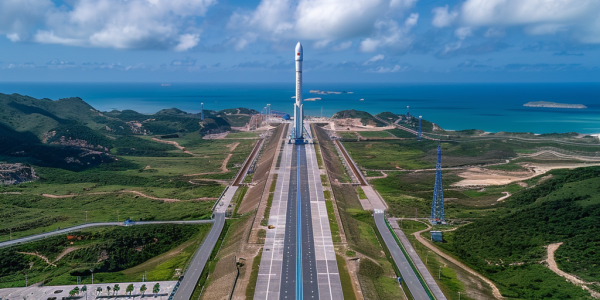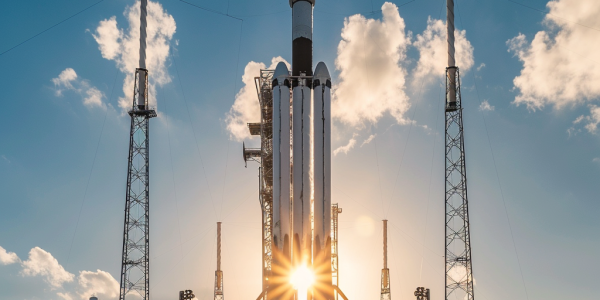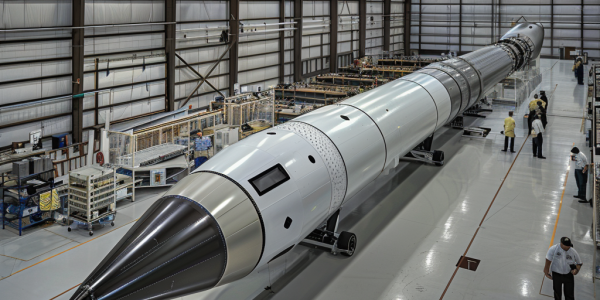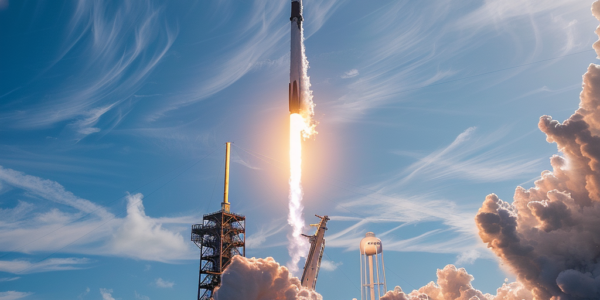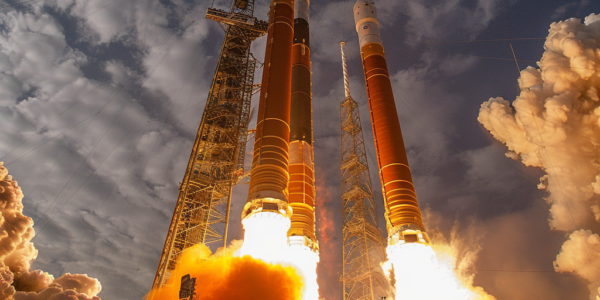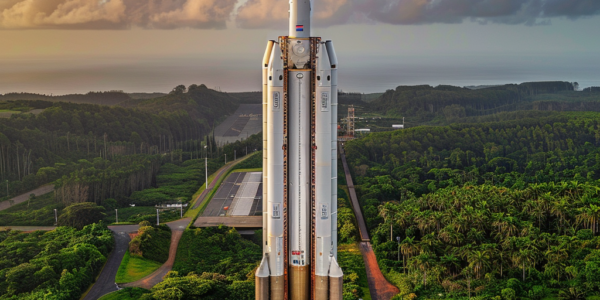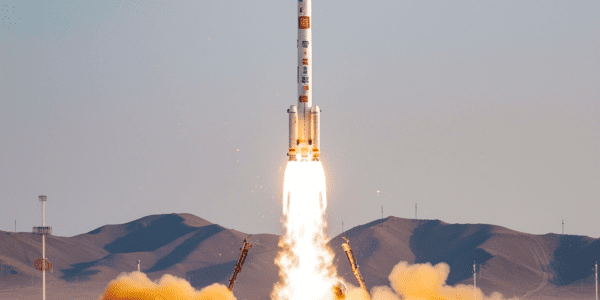Axiom Space Leads the Charge for Commercial Space Station as ISS Retirement Approaches
As the International Space Station (ISS) nears retirement, Axiom Space is leading the charge to establish the world’s first commercial space station by 2031. With plans for the Axiom Station and international collaborations, including partnerships with India’s ISRO, Axiom Space is shaping the future of human presence in low Earth orbit. The company’s innovative approach and commitment to commercial space exploration signify a new era in space travel, emphasizing global cooperation and advanced technologies.
China’s Long March-8 Rocket Completes Successful Rehearsal at New Commercial Launch Site
China’s Long March-8 rocket successfully completed a full rehearsal at the country’s first commercial space launch site in Wenchang, Hainan Province. This milestone prepares for its scheduled launch later this year, showcasing China’s commitment to advancing its commercial space capabilities and innovation in aerospace technology.
China’s Long March 9: A Game Changer for Lunar Exploration
China is making significant strides in lunar exploration with the development of the Long March 9 heavy-lift rocket, incorporating reusable technology to enhance performance and sustainability. This strategic pivot positions China competitively in the global space race, as it outlines ambitious plans for lunar missions and resource exploration. The advancements in the Long March 9 could reshape international space policy and foster new collaborations, marking a pivotal moment in the future of space exploration.
Space Launch Services Market Set for Explosive Growth by 2032
The space launch services market is projected to grow from $13.9 billion in 2022 to $47.3 billion by 2032, with a CAGR of 13.4%. This growth is driven by rising demand for satellite deployment and innovative solutions in space transportation. As private companies and government agencies enhance their capabilities, the market is set to expand, offering vital support for weather monitoring, scientific research, and global connectivity.
ULA Prepares for Historic Final Launch of Atlas 5 Rocket
United Launch Alliance (ULA) is set to launch its final Atlas 5 rocket, USSF-51, on July 30, 2024, marking a historic milestone as the 100th national security mission. This pivotal event highlights ULA’s contributions to aerospace and national security, while also paving the way for future innovations in space exploration.
Firefly Aerospace and Northrop Grumman Collaborate on New Reusable Rocket
Firefly Aerospace and Northrop Grumman are collaborating on a new medium-lift rocket, the Medium Launch Vehicle (MLV), with a recoverable booster for reuse. The rocket’s return-to-launch-site propulsive landing aims to enhance competitiveness in pricing, aligning Firefly with Rocket Lab, Relativity Space, and Stoke Space in the pursuit of rocket reusability. The MLV is set to join the ranks of launch providers for national security missions, with plans for downrange landings on barges at sea.
SpaceX’s Ambitious 2024 Rocket Launch Plans
SpaceX is gearing up for an ambitious year of rocket launches in 2024, with a target of 148 launches. The company has successfully launched 29 rockets so far, and is poised to undertake a series of Starship testing flights. With the potential for double-digit test flights, SpaceX aims to demonstrate significant progress towards making Starship a viable commercial rocket and perfecting in-space refueling.
End of an era: Last ULA Delta IV Heavy triple-core rocket to lift off from Cape Canaveral
The last ULA Delta IV Heavy rocket is set to launch from Cape Canaveral, marking the end of an era in American spaceflight. The retiring rocket will be replaced by the next-generation Vulcan, reflecting a shift towards reusability and new ways of doing business in the industry.
Europe’s Ariane 6 Rocket Arrives at Spaceport in French Guiana
Europe’s new Ariane 6 rocket has arrived at its spaceport in French Guiana, ready to launch a diverse range of missions from nine countries and dozens of organizations. The rocket’s versatility will accommodate missions from established players like NASA to students designing their first-ever satellite, with objectives including measuring gamma rays, tracking wildlife, testing self-healing solar cells, and more. The payloads for Ariane 6’s first flight are sourced from commercial companies, space agencies, and universities, each contributing hardware to test and validate their technology in space, ranging from weather measurement on Earth and in the Solar System to studying the Sun and conducting other scientific experiments.
Chinese Space Startup Landspace Achieves Successful Vertical Takeoff, Vertical Landing Test for Reusable Rocket
Chinese space startup Landspace achieved a significant milestone by successfully conducting the first vertical takeoff, vertical landing (VTVL) test for its reusable stainless steel rocket, the Zhuque-3 VTVL-1. The test took place at the Jiuquan Satellite Launch Center, with the…


